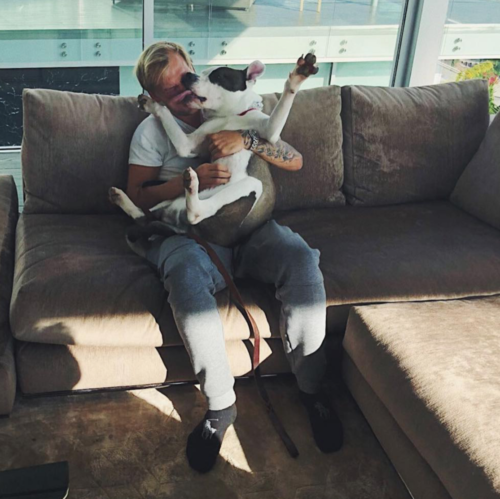Upon the numerous “revelations” that people seem to be having all over again regarding Avicii’s tumultuously intertwined personal and professional life–most especially during eight years of ceaseless touring that amounted to 813 shows amid several hospitalizations–the 2017 documentary Avicii: True Stories has taken on even more prophetic meaning in the wake of his recently alluded to suicide.
Written, directed and produced by Levan Tsikurishvili, Avicii: True Stories marked the fourth documentary feature by the Stockholm-based filmmaker, who followed the seemingly tireless DJ on his touring journey starting in 2013, when his success reached one of its ultimate crescendoes with the release of “Wake Me Up,” the song that somehow eclipsed all others to become the one played at most wedding receptions as though to throw subtle shade at the nightmare of marriage.
To appropriately accent just how much of himself Avicii had lost under the promise of alway giving his DJ career “100 percent,” the film commences in the present, by which time he looks like a middle-aged man in comparison to how he started out. As he tells it, “The first four or five years were awesome. Because you get a kick out of it the same way you get a kick out of–if you’re jumping out of a plane, you get a kick too. Because you’re playing with the feeling of almost dying.” This sinister and presaging comment to what would become Avicii’s eventual suicide sets the tone for what Avicii: True Stories is all about: trying to reconcile people’s expectations of who you are with who you actually are–and then not getting the two identities so muddled that you don’t even know which is which anymore. To compound this struggle with identity, Avicii catapulted to international stardom well before the age universally recognized as being a somewhat fully formed person (particularly for a male): twenty-five. No, instead, after reaching out to Laidback Luke with multiple demos a week, Bergling was already starting to gain the type of respect that most unknowns can never dream of. But it wasn’t from a lack extreme diligence. As one friend recalled, “He worked during the night basically. And then when he had to sleep he often walked up to his roof and slept in the sun. And he was like, ‘Yeah it’s so smart, because then I get a tan, I get sleep and then I can go back to work.'” Yet another foreshadowing comment regarding Bergling’s struggle with depression, it never helps a a depressive to be constantly deprived of natural sunlight, as was so regularly the case with his position as the Patron Saint of EDM-Fueled Nightlife. Around the time that his music was starting to appear sporadically on blogs, he caught the attention of Ash Pournouri, a club promoter/law student that eventually parlayed his success with Avicii into At Night Management and the PRMD music label, who reached out to him with a Facebook message on May 8, 2008. Four years later, Avicii was headlining the Ultra Music Festival in Miami at just twenty-two, where, as shown in the documentary, Madonna makes a surprise appearance to the audience at a time when her and Avicii’s future collaborations were just getting started. As flashbulbs go off to snap photos of him and Madonna together, he shyly tells her, “This is the first time I’m headlining so I’m like really nervous.” Incredulous, she asks, “Is this your first headline?” He confirms, “Yeah the first one.” “Cool,” Madonna says, as though somehow knowing that he’s not going to be cut out for it. From that year forward the pacing only increased to higher “levels,” with Avicii turning evermore to alcohol as both a social crutch and a means to suppress the jitters he would get every time before taking the stage.
Intercut scenes of Avicii looking particularly acne-ridden or bloated indicated the extreme toll the lifestyle was only just beginning to take on his body, culminating in hospitalizations primarily for treating his acute pancreatitis. And yet, with pressure put both on himself and coming from management, booking agents, fans and people generally counting on him to provide them with both money and a good time, Avicii continued on nonetheless, could be found at work on his computer in the hospital bed. But to be that sort of “generator” is never self-sustaining in a human being, particularly as they leave their bounce back early 20s years.
This is precisely why in 2016, Avicii finally said no more. He was just shy of twenty-seven upon making the official announcement. But as he noted of his desire to quit this aspect of being a musician, “I didn’t expect people to try and push me to do more shows, when it really…when they’d seen how shitty I felt doing it.” This feeling of still somehow being expected to fulfill his “obligation”–when he had already long ago proven himself in this realm (as any footage from Ibiza will corroborate)–served as the final nail in the coffin of his interest in being part of the music industry machine that he got swept up in at such a malleable age. Toward the end of the documentary, Wyclef Jean, who worked with Avicii, commented, “It’s hard for people who don’t have success in their twenties to understand what comes with, you know, anything you want to buy in your twenties, anything you want to have”–the eventual comedown of that, of course, is realizing you don’t have much of anything, least of all real friends.
As Avicii’s family solemnly put it, he was “an over-achieving perfectionist who traveled and worked hard at a pace that led to extreme stress. He really struggled with thoughts about Meaning, Life, Happiness. He could not go on any longer. He wanted to find peace. Tim was not made for the business machine he found himself in; he was a sensitive guy who loved his fans but shunned the spotlight.” In this way, you could say, Tim Bergling won the war against Avicii.





















